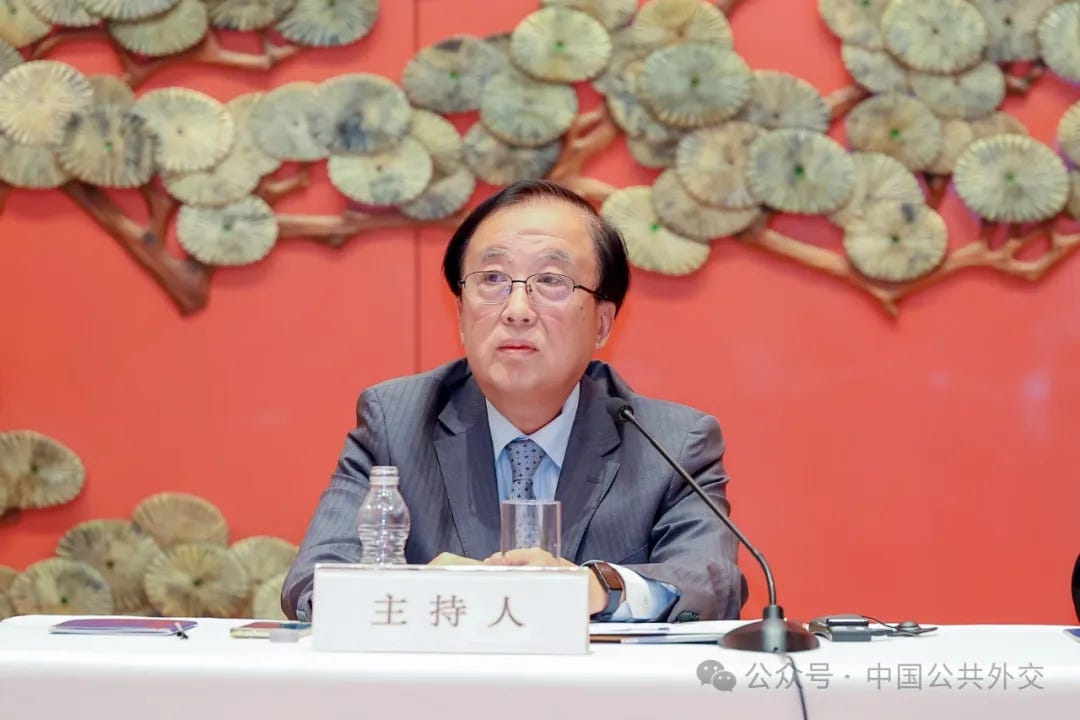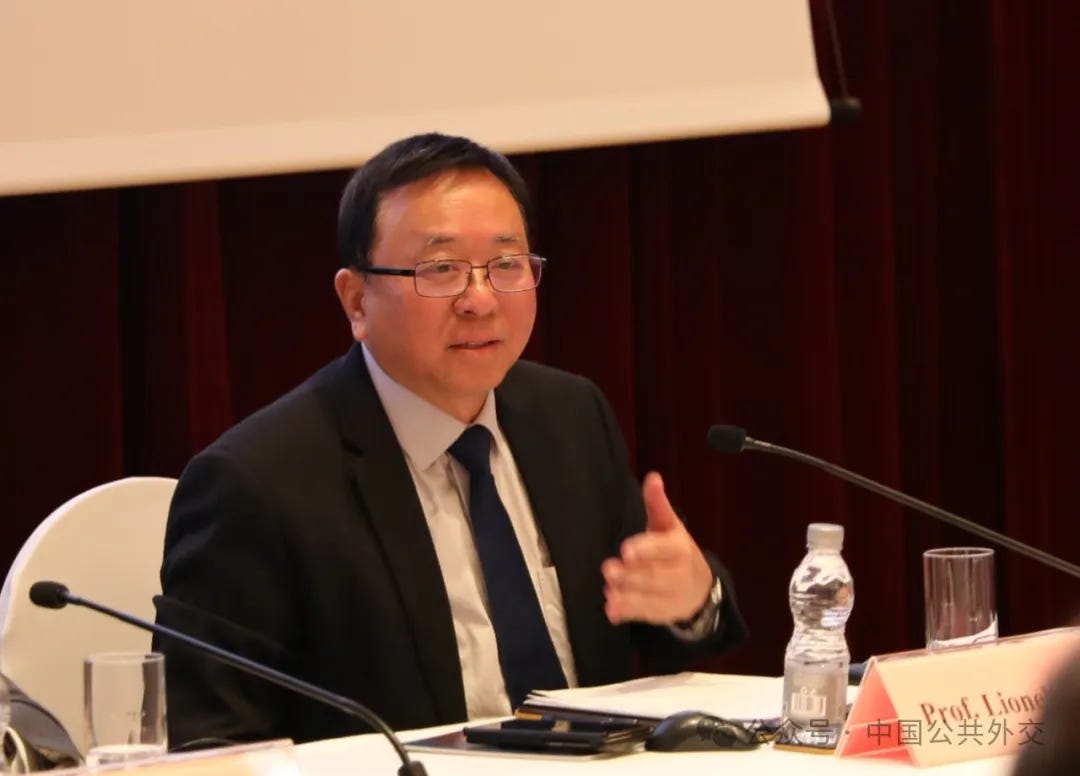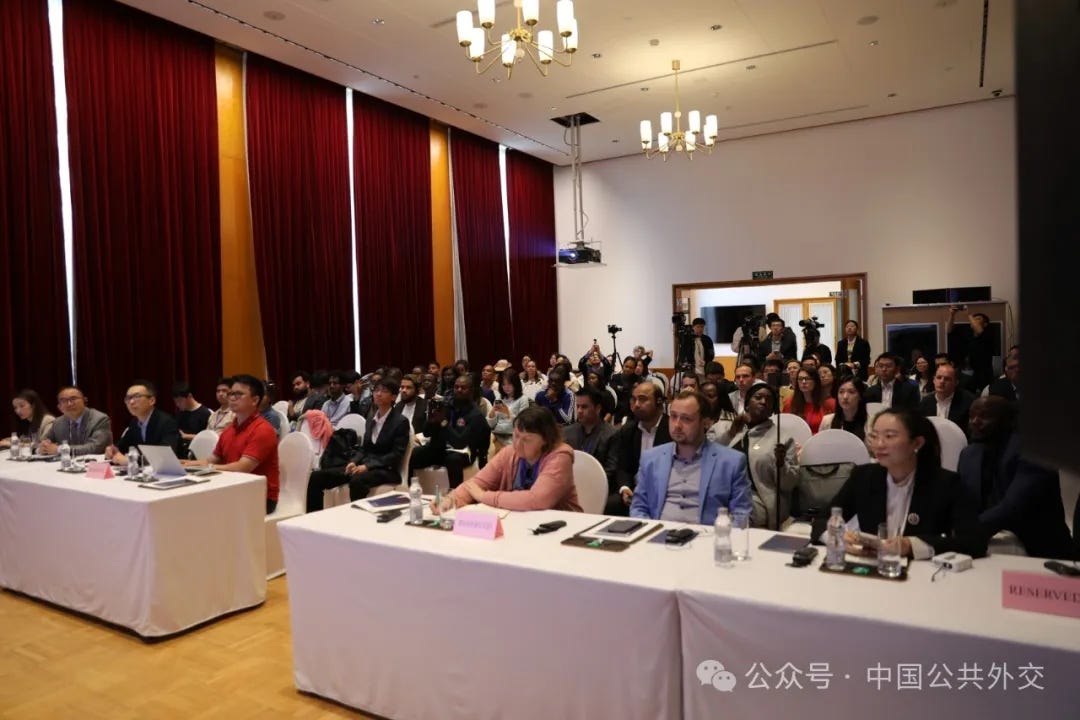China Public Diplomacy Association‘s event on the "international significance" of Chinese AI
On April 16, the China Public Diplomacy Association hosted a “No. 7 Linjia” Salon at the Xianhe Hall of the Beijing International Club. The event featured a keynote speech by Professor Lionel Ni, President of The Hong Kong University of Science and Technology (Guangzhou), who spoke on the current state of China’s AI technology development and industrial applications, as well as their international significance. He also engaged in discussions with journalists from both Chinese and international media outlets, including Xinhua News Agency, China Media Group, China News Service, China Daily, Global Times, Phoenix TV, NBC, CNBC, Kyodo News, Jiji Press, Chosun Ilbo, Korea Economic Daily, and reporters from the China International Press Communication Center.
The salon is a brand event organised by the China Public Diplomacy Association, a non-governmental organisation under the direction of China's foreign ministry and led by Wu Hailong, former Chinese ambassador to the EU. Li Zhaoxing, former Chinese Foreign Minister, served as head of the association from 2012 to 2019, after retiring from the FM post.
On November 24th, China held a "Linjia 7 Salon" press conference on its "Global AI Governance Initiative," with the head of the CAC's cyber security bureau (main AI regulators of CAC) and a deputy head of MIIT's science and technology department briefing the content and ramification of the initiative to Chinese and foreign media.
Mr. Chen Yuming, Vice President of the China Public Diplomacy Association and former Chinese ambassador to Australia, moderated the salon. Ambassador Chen remarked that artificial intelligence has become one of the most talked-about topics during China’s “Two Sessions.” The concept of “AI Plus” has been included in the Government Work Report for two consecutive years, signalling a powerful synergy between favourable policies and market momentum. He noted that China’s AI development is progressing rapidly with strong prospects. As a major global player in AI, China also bears the responsibility to contribute to the global governance of AI and promote common development. He emphasised China’s commitment to fostering dialogue and cooperation with all parties to jointly shape an intelligent era guided by ethical, inclusive, and shared technological progress.
President Lionel Ni provided a clear and engaging overview of key advancements in artificial intelligence, including large language models, intelligent agents, and embodied AI. He particularly emphasized the transformative impact of the digital-intelligence revolution on talent development paradigms and the journalism industry. He highlighted the emergence of DeepSeek as a significant milestone, noting that it has dramatically reduced the cost of deploying large models, thereby unleashing a new wave of innovation and entrepreneurship in China. This, he said, contributes uniquely to the global AI revolution. He further explained that China's thriving innovation ecosystem—driven by coordinated efforts in policy, market demand, and scientific research—along with its massive market and rich application scenarios, has mobilized tens of billions of capital into building foundational AI infrastructure. He called for breaking down barriers in global AI research and industrial collaboration, advocating for cooperation and mutual benefit. President Ni stressed that building “small yards with high walls” and isolating others is not the solution. Instead, open exchange, inclusive growth, and balanced development are the paths forward.
During the interactive session, President Ni also addressed key topics raised by Chinese and international journalists, including China’s “AI Plus” policy, the impact of tariff policies on AI development, how to mitigate potential risks associated with AI, and how China can work with emerging markets to tackle monopolistic practices by multinational tech giants and co-develop an inclusive global AI governance framework.
The salon was attended by representatives from nearly 100 domestic and international media outlets. The discussions were in-depth, and the response was overwhelmingly positive.




